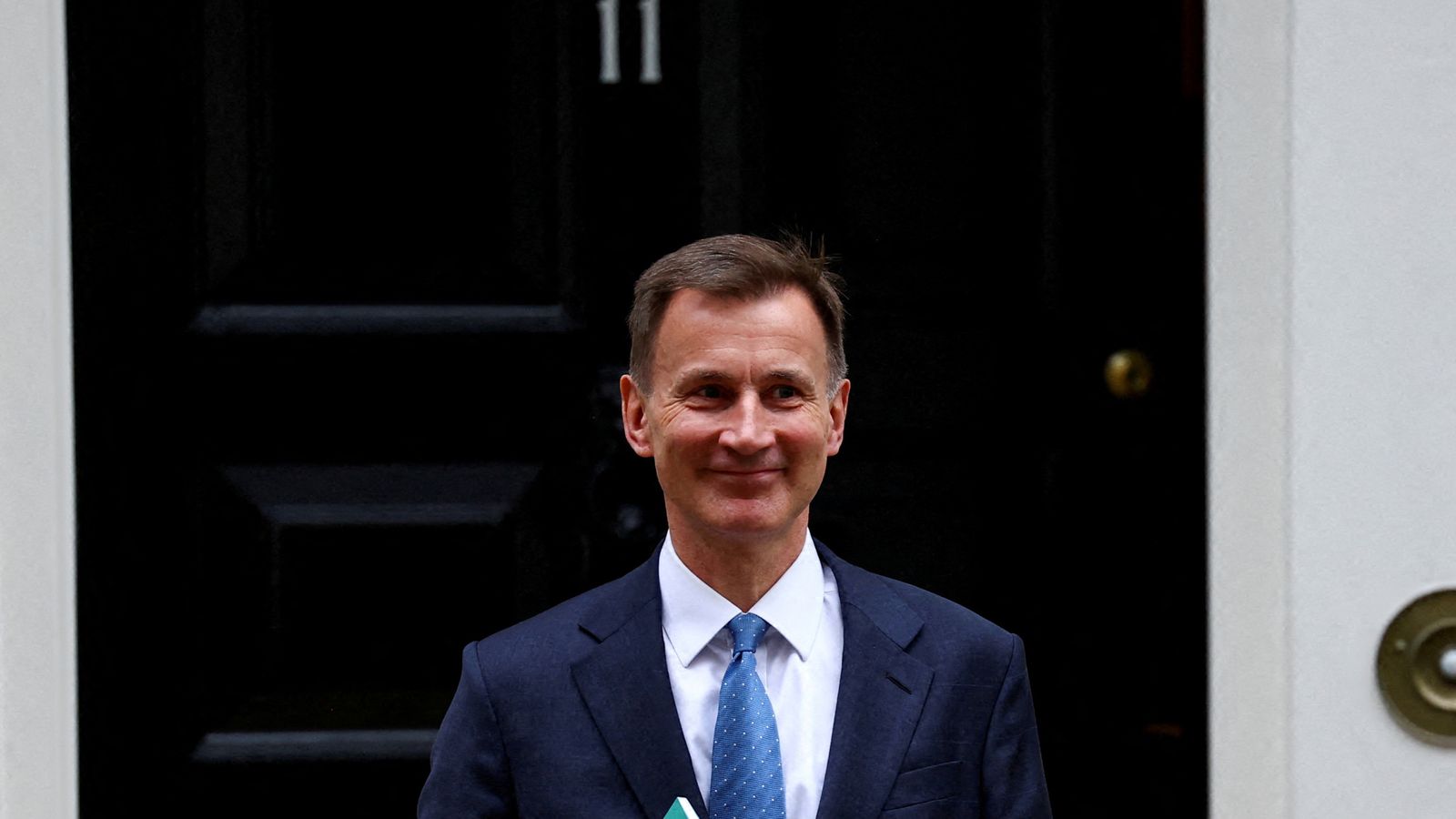Jeremy Hunt is considering a last minute further cut to public spending to boost the tax giveaway in Wednesday’s budget.
The Politics At Jack And Sam’s podcast, out now, set out how Number 10 and 11 have spent recent days finding as many different ways of raising future revenue as possible to increase the size of Wednesday’s tax cuts.
National insurance could be cut by 2p again in the budget if the chancellor succeeds in finding the right mix of revenue raising measures and spending cuts.
Currently spending is due to rise 1% above inflation after next year. However, if this was cut to 0.75% above inflation, that would raise £5-6bn.
The chancellor would hope to resist questions about where he would cut, saying he is doing an efficiency drive and decisions would be outlined at a future spending review post election.
The decision on whether to cut future spending was live in the Treasury as recently as Friday, and this morning the chancellor was arguing about the importance of finding efficiencies.
This is likely to boost Labour’s charge that the government is “maxing out the credit card” to keep its own supporters on side.
Whatever happens in the budget, Tories will be happy to put Labour in a difficult position
Jewish people ‘terrified to leave homes’ during pro-Palestinian marches, says Jeremy Hunt
Budget 2024: Unfunded tax cuts ‘deeply unconservative’, says Jeremy Hunt
However, most Tories in government believe this is a necessary trade-off to allow the party to go into the next election presenting themselves as the low-tax party.
Some senior Tories disagree, however, worrying that the public is more worried about the state of public services than tax cuts.
The budget is likely to have cuts or the abolition of non-dom status, which could raise £2-3bn, plus other small loopholes closing generating a few hundred million in revenue.
The Politics At Jack And Sam’s Podcast also reveals how delaying Contaminated Blood compensation payouts has helped deliver tax cuts.
In January, the Treasury was worried those payments might reduce the amount the chancellor could spend before he reached the borrowing limits from his fiscal rules.
However, the inquiry will not report until later and the government is resisting calls for interim payouts.






















